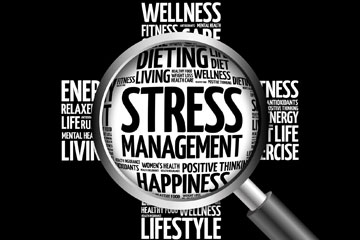Stress is a feeling of emotional and physical tension that occurs through an event that makes you feel angry, nervous, or frustrated. According to a medlineplus article, stress is your body’s reaction to a challenge or demand. Stress can be positive and its power can be harnessed to meet a deadline or avoid danger. However, if stress lasts for a long time, it can cause serious health issues.
There are different types of stress and techniques to manage the condition. These techniques will work for some people but may not be effective for others. There are two reasons why these techniques may not work, according to www.verywellmind.com:
- The techniques do not match the person’s personality, or
- They are not suitable for the situation
There many stress relieving techniques to suit different personalities and situations. Finding and following the one that will help you can help you manage stress effectively.
Here are the different types of stress and the techniques to manage them:
Acute stress: This is the most common type of stress. It usually occurs from demands and pressures of the recent past and anticipated demands and pressures of the near future. Acute stress comes on quickly and sometimes unexpectedly. It is short term and doesn’t last too long, but needs a response. Fortunately, the symptoms of this stress are easily identified by most people. It is usually triggered when something goes wrong in the person’s life, such as, the loss of an important work contract, problems their child is facing at school, and so on. Your body’s stress response is triggered with acute stress. The following relaxation tips can reverse stress and help you get back to your routine:
- Do breathing exercises
- Cognitive reframing – this means changing the way you look at a situation
- Spend 5 minutes doing meditation
- Progressive Muscle Relaxation – this reduces overall body tension and psychological stress, and helps you calm down.
Chronic stress: This is the grinding stress that wears people away day after day, year after year. If it is not effectively managed, chronic stress can destroy a person’s life, body, and mind. When the stress response is triggered in the body and it is not bought back to its relaxed state before the next wave of stress hits, the body will stay triggered indefinitely. For instance, a person with a chronically ill loved one may feel stress more often in their daily life. Over time, this can develop into chronic stress and eventually lead to several physical and mental problems. It can lead to diseases such as, cardiovascular disease, gastrointestinal issues, depression, anxiety, and many other conditions. Due to these reasons, it is very crucial that chronic stress is to be managed.
Managing chronic stress requires a combination approach of some short-term stress relievers (like those for acute stress) and long-term habits that relieve overall stress. Emotion-focused and solution-focused coping techniques are also important to manage this type of stress.
Long-term stress relief habits are:
- Regular exercise can help you stay physically and mentally fit
- Eating healthy foods can bring down stress levels by helping your entire system function well.
- Listening to music is a wonderful way to reduce stress.
- Meditation can help you get relief from acute stress. If practised regularly, meditation will help build your overall resilience to stress.
- Cultivating supportive relationships can help as having a solid support system can help you better cope with stress.
Emotional stress: This can hit harder than some other types of stress. For instance, the stress that comes from a broken relationship may bring a greater physical reaction and a stronger sense of distress than the stress due to overwork. With continuing emotional stress, a person might lose or gain weight. Symptoms of emotional stress include anxiety, memory lapses, mood swings, avoiding friends and family, etc. Here are some effective ways to manage type of stress:
- Try to talk to a friend or someone you are comfortable with
- Talk to a therapist
- Listen to music
- Practice mindfulness: it can help you become rooted in the present moment
- Keeping a journal can help you gain control of your emotions
Episodic Acute Stress: This type of stress refers to frequent bouts of acute stress. People who have this stress type will sometimes take more responsibilities than they can manage. They may seem like they are disorganized. This stress type is the result of unrealistic expectations of themselves, for example, the person misses a deadline at work and suddenly starts having an outsized reaction. Even if his boss is not too angry, he starts thinking that he will lose his job, become homeless, and die on the streets. This panic is a reasonable reaction to the situation and can end up harming the person.
Strategies to deal with this type of stress:
- Lifestyle changes (therapists may recommend a job change, starting a physical exercise routine, etc)
- Cognitive Behavioral Therapy can help people react to triggers healthily
- Medication
At times, stress can help you to avoid danger and accomplish tasks more efficiently, but if it lasts for long time, it can harm your overall health. Even if it’s good stress or bad stress, learning to manage it is important to maintain your overall health.
